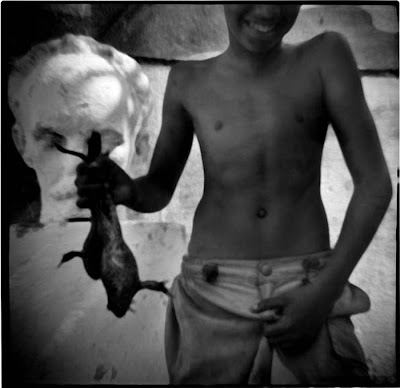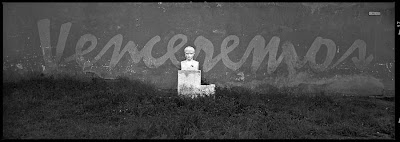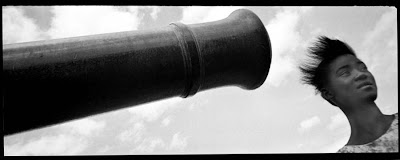invited guest: Francisco Mata Rosas



 CENTRO HABANA
CENTRO HABANA
The economic embargo imposed by the United States, the erosion of the political system, the period of economic hardship in which Cubans have been living in for over 10 years, and recently the presence of tourists, particularly those looking to find cheap sex, defines the context in which Cuban people are growing up; the third post-revolution generation is growing up in the period of economic hardship, without understanding the reasons behind their predicament, as the world looks on, as if observing a vast social experiment to see how long Fidel's system can survive, without caring that human beings are spending their youth and childhood in these difficult conditions.

 The lack of available goods, disenchantment, tradition, hopes, distortion of the concept of work due to the easy money that tourism represents, confused ideas about information, music, baseball, the sea as an unbreakable border, sex as a means of finding an economic future, are all part of this large universe where Cubans are growing up today. On the other hand, independently of these political, social and economic conditions, the Cuban culture is alive, preserving its traditions particularly in sports, music, and the arts which express themselves vividly.
The lack of available goods, disenchantment, tradition, hopes, distortion of the concept of work due to the easy money that tourism represents, confused ideas about information, music, baseball, the sea as an unbreakable border, sex as a means of finding an economic future, are all part of this large universe where Cubans are growing up today. On the other hand, independently of these political, social and economic conditions, the Cuban culture is alive, preserving its traditions particularly in sports, music, and the arts which express themselves vividly.

 I try to understand this context and to photograph these Cubans and their daily lives, these children who will become the political leaders, baseball players, doctors, musicians, athletes, prostitutes and artists of the next Cuban century - these children who are in fact the unknown dimension of this island, of this system, this third and fourth generation of hopes.
I try to understand this context and to photograph these Cubans and their daily lives, these children who will become the political leaders, baseball players, doctors, musicians, athletes, prostitutes and artists of the next Cuban century - these children who are in fact the unknown dimension of this island, of this system, this third and fourth generation of hopes. 


Francisco Mata Rosas
Born in Mexico City in 1958, he has lived there ever since. He has a B.A. in Communications Science from the Universidad Autónoma Metropolitana, Xochimilco campus. He was a photojournalist for La Jornada newspaper for six years after its creation. His photographic works have been published in some of the main newspapers and magazines in the United States, Spain, Canada, Italy, England, and Mexico. There have recently been exhibits of his photographs in Mexico, Holland, Germany, Italy, Spain, France, England, the United States, Scotland, Japan, Argentina, Brazil, Panama, Uruguay, Ecuador, Peru, Honduras, Cuba, Ukraine, Bratislava, South Africa, China and Costa Rica, to mention just a few.
Mata has also received the following awards, among others:
•Acquisition award of the Mexican Photography Biennal, 1988
•Honors at the Bicentennial of the French Revolution Con-test, 1989
•Young Creators' Grant from the National Fund for Culture and the Arts (FONCA), 1989
•Third Annual Mother Jones, USA, 1993
•FONCA Coinvestment Award, 1994
•First International Award for Internet in Japan, 1997
•FONCA Promotional Award, 1999
•He has been a member of the National System of Art Creators in México since 2000
In the editorial field, his pictures can be found in over twenty books and he is the individual author of Sábado de Gloria (Easter Saturday), 1994, América profunda (Deep America), 1999, and Litorales (Coasts), 2000, Mexico Tenochtitlan, 2005 and Tepito ¡bravo el barrio!, 2007. He has also participated as lecturer in most of the photographic events in Mexico, has been a judge of several national and international contests, and has given talks and courses over the past ten years in various universities and cultural centres in the country and abroad.
His official website is: www.franciscomata.com.mx
invited by ulf fågelhammar
all pictures and text ©Francisco Mata Rosas






